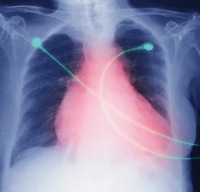Disease
Etymology
Middle English disese, from Anglo-French desease, desaise, from des- dis- + eise ease
- Date: 14th century
Definition
- 1 obsolete : trouble
- 2 : a condition of the living animal or plant body or of one of its parts that impairs normal functioning and is typically manifested by distinguishing signs and symptoms : sickness, malady
- 3 : a harmful development (as in a social institution)
Description
Disease is a pathological state of a part of an organism. Disease may be brought about by multiple causes such as genetic, infectious, or environmental factors. Distinct symptoms usually indicate the presence of disease.
The concept of disease is at the heart of biomedicine. The purpose of biomedicine, also referred to as allopathic medicine, is to diagnose and cure physical pathology. Historically, disease has been understood in different ways. Before the use of the scientific method and the rise of biomedicine, disease and its symptoms were usually attributed to spirits, witchcraft, humoral processes, or other causes in the social world. In contrast, biomedicine tends solely to consider organic causes and aspects of disease. Discoveries such as the germ theory of disease and the existence of entities such as viruses and bacteria did much to bolster this latter understanding. Discovering the root physical cause of the disease is considered essential to treating, curing, and preventing it. For example, if a patient has a bacterial infection, an antibacterial medication is given. When a medication like penicillin was discovered to fight the disease process, it changed the health outcomes of entire populations. Similarly, when it was discovered that diseases could be transferred by germs, handwashing became a common practice. This simple behavior changed obstetrical practice and reduced infant mortality rates when babies started to be delivered into clean hands. In addition to curative medications and behavioral changes, biomedicine has discovered vaccines that can prevent diseases that were otherwise disabling or deadly such as measles and diphtheria. Because of the power of the biomedical approach to disease, medical research continues to flourish with the promise of curing an increasing number of diseases.
Biomedicine has made staggering improvements to the prevention and treatment of a myriad of diseases. However, the emphasis in this type of medical system is on disease rather than health or well-being. Allopathic means "against suffering or disease" and overwhelmingly focuses on removing pathology rather than sustaining health. In this disease-focused system, a person is often stripped of psychosocial or spiritual aspects and effectively becomes a set of body parts to fix. While this emphasis on pathology is changing to encompass health promotion to some extent, the Western medical system is still predominantly one of crisis management. Other systems, such as several Eastern medical models, focus on regular practices to sustain health in addition to disease treatment.
Current controversy exists over whether some conditions should be considered diseases or not in allopathic medicine. For example, a long-standing area of disagreement is addictions. Alcoholism, once considered a moral failing, is increasingly thought of as a disease with genetic factors related to the malfunctioning of neurotransmitters. Many psychiatric disorders have also been redefined as diseases rather than bad behavior such as Tourette's syndrome, eating disorders, and obsessive-compulsive disorder. For many in Western societies, having a troubling condition defined as a disease rather than a character flaw removes stigma and aids the solicitation of professional help.
Medical anthropologist Arthur Kleinman identified an important distinction between disease and illness. He argues that disease refers to the biological pathology as well as health care practitioners' understanding of the pathology according to biomedical models. On the other hand, illness refers to a broader set of experiences around the disease including the patient's and family's subjective recognition, naming, and experience of the problem. Whereas disease is presented as acultural in a medical model¹, illness includes the sociocultural context of a problem. The social and cultural components of the experience of a condition have been identified as crucial to the course of the condition. Therefore, medical sociologists and anthropologists point to the importance of examining the illness in addition to the disease, even in biomedical contexts. In the study of disability, several anthropologists such as Robert Edgerton, Benedicte Ingstad, and Susan Reynolds Whyte proved that cultural context makes a significant difference in the identification, experience, and outcome of a condition. The disease/illness distinction is also especially relevant as allopathic medicine expands transculturally and as heavy transnational immigration creates multicultural communities. In such cases, experiences of illness and disability as well as symptom reporting may vary greatly, and it is crucial that important cultural differences are not dismissed in the professional health care setting.
Note
1. Many have convincingly argued that even biological pathology is shaped by culture. For example, heart disease and obesity-related health problems have been found to vary in their prevalence depending on a diet common to a particular culture or region.
Further Readings
- Early, E. 1982. "The Logic of Well-Being: Therapeutic Narratives in Cairo, Egypt." Social Science Medicine 16:1491–1497.
- Edgerton, Robert. 1971. Cloak of Competence: Stigma in the Lives of the Mentally Retarded. Berkeley: University of California Press.
- Good, Byron. 1994. Medicine, Rationality, and Experience: An Anthropological Perspective. New York: Cambridge University Press.
- Ingstad, Benedicte and Susan Reynolds Whyte. 1995. Disability and Culture. Berkeley: University of California Press.
- Kleinman, Arthur. The Illness Narratives: Suffering, Healing, and the Human Condition. New York: Basic Books.
- Project Cork. 2004. "CORK Bibliography: Disease Concept of Alcoholism." Norwich, VT. (https://www.projectcork.org/index.html).
Source Citation
Anderson-Fye, Eileen. "Disease." Encyclopedia of Disability. Ed. Gary Albrecht. Vol. 1. Thousand Oaks: Sage Reference, 2006. 502-503. 5 vols. Gale Virtual Reference Library. Gale.
